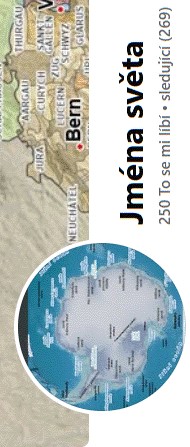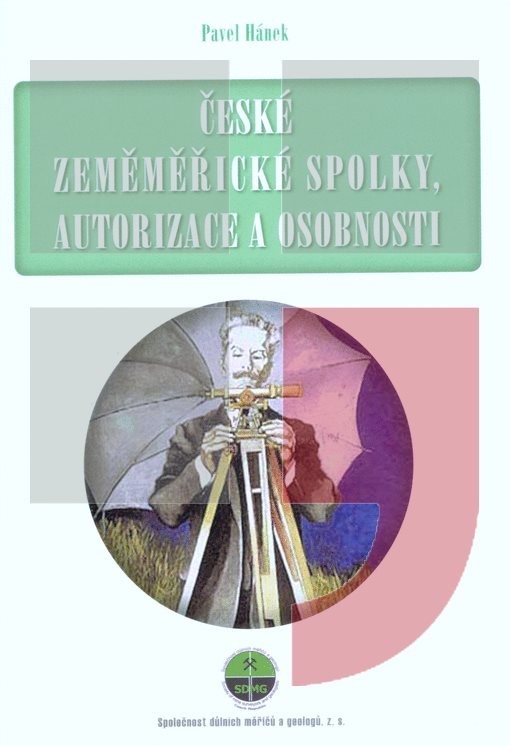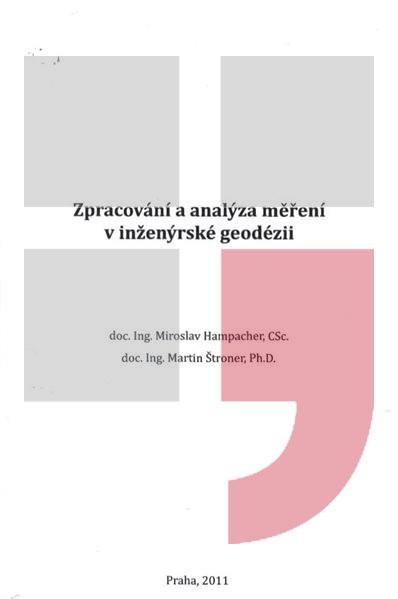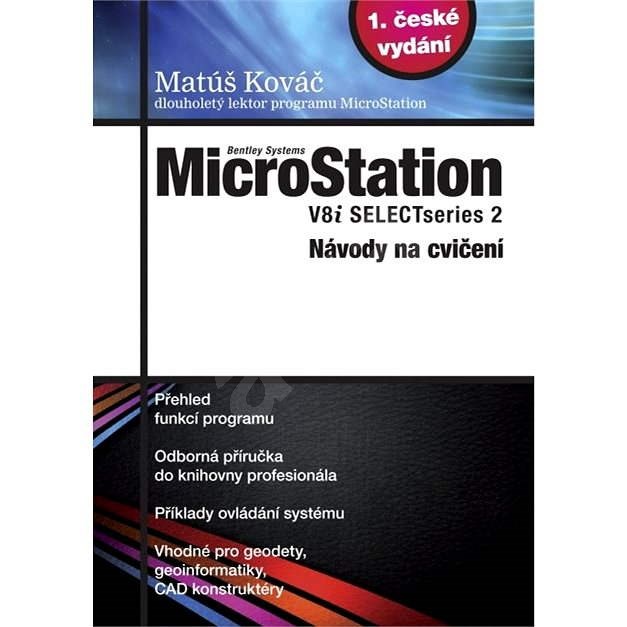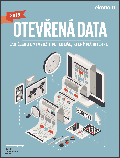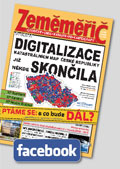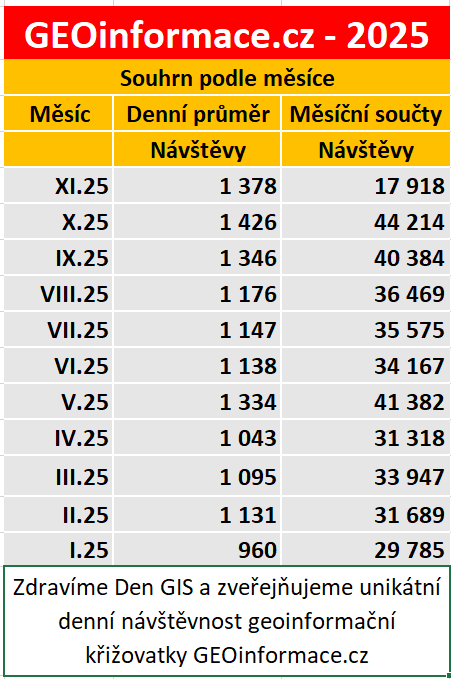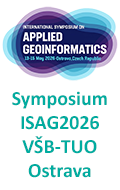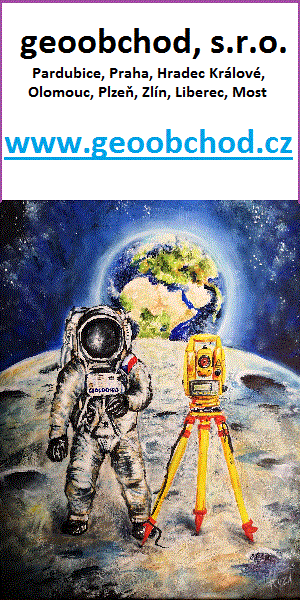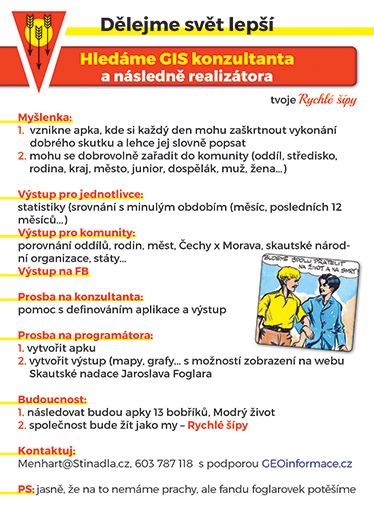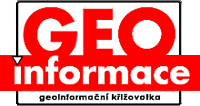zprávy
zdroje zpráv:vedoucí oddělení aktualizace KN I.
24.5.2016 12:43 ČÚZK - předpisy a opatřeníOznámení o vyhlášení výběrového řízení na služební místo odborný rada – vedoucí oddělení aktualizace KN I. na Katastrálním pracovišti Jihlava, místo výkonu služby Jihlava zde.
vedoucí oddělení aktualizace KN I.
24.5.2016 12:43 ČÚZK - předpisy a opatřeníOznámení o vyhlášení výběrového řízení na služební místo odborný rada – vedoucí oddělení aktualizace KN I. na Katastrálním pracovišti Jihlava, místo výkonu služby Jihlava zde.
vedoucí oddělení aktualizace KN I.
24.5.2016 12:43 ČÚZK /Urady/Katastralni-urady/Katastralni-urady/Katastralni-urad-pro-Vysocinu/Katastralni-pracoviste/KP-Jihlava/O-uradu/Aktuality/vedouci-oddeleni-aktualizace-KN-Ivedoucí oddělení dokumentace KN
24.5.2016 12:42 ČÚZK - předpisy a opatřeníOznámení o vyhlášení výběrového řízení na služební místo rada/odborný rada – vedoucí oddělení dokumentace KN na Katastrálním pracovišti Jihlava, místo výkonu služby Jihlava zde.
vedoucí oddělení dokumentace KN
24.5.2016 12:42 ČÚZK /Urady/Katastralni-urady/Katastralni-urady/Katastralni-urad-pro-Vysocinu/Katastralni-pracoviste/KP-Jihlava/O-uradu/Aktuality/vedouci-oddeleni-dokumentace-KNvedoucí oddělení dokumentace KN
24.5.2016 12:42 ČÚZK - předpisy a opatřeníOznámení o vyhlášení výběrového řízení na služební místo rada/odborný rada – vedoucí oddělení dokumentace KN na Katastrálním pracovišti Jihlava, místo výkonu služby Jihlava zde.
vedoucí oddělení právní vztahy k nemovitostem
24.5.2016 12:41 ČÚZK /Urady/Katastralni-urady/Katastralni-urady/Katastralni-urad-pro-Vysocinu/Katastralni-pracoviste/KP-Jihlava/O-uradu/Aktuality/vedouci-oddeleni-pravni-vztahy-k-nemovitostemvedoucí oddělení právní vztahy k nemovitostem
24.5.2016 12:41 ČÚZK - předpisy a opatřeníOznámení o vyhlášení výběrového řízení na služební místo odborný rada – vedoucí oddělení právní vztahy k nemovitostem na Katastrálním pracovišti Jihlava, místo výkonu služby Jihlava zde.
Odborný rada – vedoucí oddělení aktualizace KN II. (1)
24.5.2016 12:37 ČÚZK - volná místa Katastrální úřad pro Vysočinu, Katastrální pracoviště Jihlava vypisuje výběrové řízení na místo Odborný rada – vedoucí oddělení aktualizace KN II. (1)Odborný rada – vedoucí oddělení aktualizace KN II. (1)
24.5.2016 12:37 ČÚZK /Urady/Katastralni-urady/Katastralni-urady/Katastralni-urad-pro-Vysocinu/Uredni-deska/Oznameni-a-jina-uredni-sdeleni/Volna-mista/Odborny-rada-–-vedouci-oddeleni-aktualizace-KN-(3)Odborný rada – vedoucí oddělení aktualizace KN II. (1)
24.5.2016 12:37 ČÚZK - předpisy a opatření Katastrální úřad pro Vysočinu Katastrální pracoviště Jihlavavypisuje výběrové řízení na místo
Odborný rada – vedoucí oddělení aktualizace KN II.
Odborný rada – vedoucí oddělení aktualizace KN I. (1)
24.5.2016 12:33 ČÚZK - volná místa Katastrální úřad pro Vysočinu, Katastrální pracoviště Jihlava vypisuje výběrové řízení na místo Odborný rada – vedoucí oddělení aktualizace KN I. (1)Odborný rada – vedoucí oddělení aktualizace KN I. (1)
24.5.2016 12:33 ČÚZK - předpisy a opatření Katastrální úřad pro Vysočinu Katastrální pracoviště Jihlavavypisuje výběrové řízení na místo
Odborný rada – vedoucí oddělení aktualizace KN I.
Odborný rada – vedoucí oddělení aktualizace KN I. (1)
24.5.2016 12:33 ČÚZK /Urady/Katastralni-urady/Katastralni-urady/Katastralni-urad-pro-Vysocinu/Uredni-deska/Oznameni-a-jina-uredni-sdeleni/Volna-mista/Odborny-rada-–-vedouci-oddeleni-aktualizace-KN-I-(Rada/odborný rada – vedoucí oddělení dokumentace KN.
24.5.2016 12:28 ČÚZK - volná místa Katastrální úřad pro Vysočinu, Katastrální pracoviště Jihlava vypisuje výběrové řízení na místo Rada/odborný rada – vedoucí oddělení dokumentace KN.Rada/odborný rada – vedoucí oddělení dokumentace KN.
24.5.2016 12:28 ČÚZK /Urady/Katastralni-urady/Katastralni-urady/Katastralni-urad-pro-Vysocinu/Uredni-deska/Oznameni-a-jina-uredni-sdeleni/Volna-mista/Rada-odborny-rada-–-vedouci-oddeleni-dokumentace-KRada/odborný rada – vedoucí oddělení dokumentace KN.
24.5.2016 12:28 ČÚZK - předpisy a opatření Katastrální úřad pro Vysočinu Katastrální pracoviště Jihlavavypisuje výběrové řízení na místo
Rada/odborný rada – vedoucí oddělení dokumentace KN.
Odborný rada – vedoucí oddělení právní vztahy k nemovitostem. (3)
24.5.2016 12:25 ČÚZK - volná místa Katastrální úřad pro Vysočinu, Katastrální pracoviště Jihlava vypisuje výběrové řízení na místo Odborný rada – vedoucí oddělení právní vztahy k nemovitostem. (3)Odborný rada – vedoucí oddělení právní vztahy k nemovitostem. (3)
24.5.2016 12:25 ČÚZK - předpisy a opatření Katastrální úřad pro Vysočinu Katastrální pracoviště Jihlavavypisuje výběrové řízení na místo
Odborný rada – vedoucí oddělení právní vztahy k nemovitostem.
Odborný rada – vedoucí oddělení právní vztahy k nemovitostem. (3)
24.5.2016 12:25 ČÚZK /Urady/Katastralni-urady/Katastralni-urady/Katastralni-urad-pro-Vysocinu/Uredni-deska/Oznameni-a-jina-uredni-sdeleni/Volna-mista/Odborny-rada-–-vedouci-oddeleni-pravni-vztahy-(3)Dnes byla provedena v Geoportá
24.5.2016 12:00 Ústecký kraj Dnes byla provedena v Geoportálu ÚAP Ústeckého kraje aktualizace údajů pro poskytovatele ČEPRO, a.s. – jev 68, 70, 73, 76, 78, 97 a UPC Česká republika, s.r.o. – jev 81, 82Galileo launch coverage
24.5.2016 11:40 ESA Navigation
Full replay of the launch and separation coverage of Europe's thirteenth and fourteenth Galileo satellites
Galileo launch coverage
24.5.2016 11:40 ESA Navigation
Full replay of the first part of the launch coverage of Europe's thirteen and fourteen Galileo satellites
Galileo launch coverage
24.5.2016 11:40 ESA Navigation
Full replay of the first part of the launch coverage of Europe's thirteen and fourteen Galileo satellites
Galileo liftoff replay
24.5.2016 11:00 ESA Navigation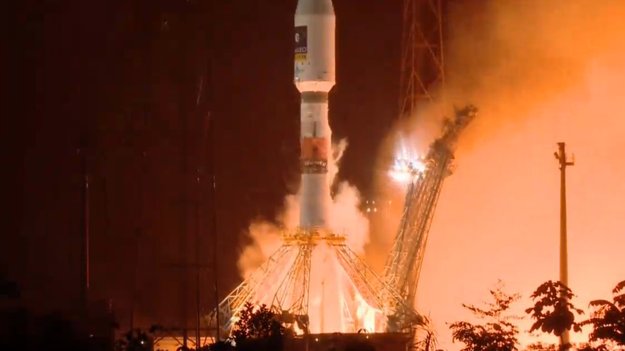
Europe's 13th and 14th Galileo satellites lifted off by Soyuz on 08:48 GMT - watch replay here
Galileo liftoff replay
24.5.2016 11:00 ESA Navigation
Europe's 13th and 14th Galileo satellites lifted off by Soyuz on 08:48 GMT - watch replay here
20160524-Best Practices v oblasti ISA SIS
24.5.2016 10:59 ČÚZK - předpisy a opatření RÚIAN byl na konci dubna zařazen Evropskou komisí mezi deset „Best Practices“ v oblasti ISA SIS (interoperabilita veřejné správy v EU – prostorové informace a systémy) – více zde.20160524-Best Practices v oblasti ISA SIS
24.5.2016 10:59 ČÚZK /Aktuality-resort/20160524-Best-Practices-v-oblasti-ISA-SIS20160524-Best Practices v oblasti ISA SIS
24.5.2016 10:59 ČÚZK - předpisy a opatřeníRÚIAN byl na konci dubna zařazen Evropskou komisí mezi deset „Best Practices“ v oblasti ISA SIS (interoperabilita veřejné správy v EU – prostorové informace a systémy) – více zde.
20160524-Best Practices v oblasti ISA SIS
24.5.2016 10:59 ČÚZK - předpisy a opatření RÚIAN byl na konci dubna zařazen Evropskou komisí mezi deset „Best Practices“ v oblasti ISA SIS (interoperabilita veřejné správy v EU – prostorové informace a systémy) – více zde.Příjem geodetické dokumentace v Praze
24.5.2016 10:05 Zeměměřič Předpokládané datum sputění nová aplikace na ePříjem geodetické dokumentace je 1. 6. 2016.Boj proti korupci - opatření ČÚZK
24.5.2016 10:05 Zeměměřič Informace o moném korupčním ohroení činnosti některého z orgánů státní správy zeměměřictví a katastru nemovitostí je moné sdělit i anonymně e-mailem na adresu podatelny místně přísluného ZKI nebo ČÚZK nebo nadiktovat na záznamník na tel. číslo 284 041 277.Testing the NAVIS waters
24.5.2016 9:31 European GNSS AgencyThe Horizon 2020-funded BELS project is inviting European GNSS companies to come to South East Asia and visit the NAVIS Centre.
According to the most recent edition of the European GNSS Agency’s (GSA) GNSS  market report, Asia is the ‘hot spot’ for global navigation satellite systems (GNSS). In fact, it is currently the primary region of global market growth in terms of in-use GNSS devices. The region is forecasted to grow 11 % per year, from 1.7 billion devices in 2014 to 4.1 billion in 2023 – more than the EU and North America combined. Furthermore, the GSA notes that the region is becoming increasingly active in chipset manufacturing, along with building their own constellations.
market report, Asia is the ‘hot spot’ for global navigation satellite systems (GNSS). In fact, it is currently the primary region of global market growth in terms of in-use GNSS devices. The region is forecasted to grow 11 % per year, from 1.7 billion devices in 2014 to 4.1 billion in 2023 – more than the EU and North America combined. Furthermore, the GSA notes that the region is becoming increasingly active in chipset manufacturing, along with building their own constellations.
In other words, Asia is an important market for GNSS, and the GSA is dedicated to ensuring European businesses are in a position to benefit from it.
Building bridges
Spearheading this effort is the Horizon 2020-funded BELS project. Committed to bringing European GNSS (E-GNSS) companies to South East Asia, the project aims to facilitate the breakthrough of E-GNSS technology by conducting a set of coordinated activities for raising awareness and capacity building. The BELS consortium is gathering the top GNSS universities and research institutes together to offer doctorate (PhD) partnering programmes, training opportunities, and placements for students at EU and Asian companies.
For companies seeking to collaborate on GNSS research and development (R&D), BELS also operates NAVIS, a dedicated GNSS R&D centre located in Hanoi, Vietnam. The facility is available for both testing and research activities, and as a hub for establishing new links with regional GNSS stakeholders. A motivated young team of researchers, which has regular exchanges with European universities, completes the picture.
A unique invitation
Although several EU receiver manufacturers have used the opportunity to co-locate their receivers at NAVIS, as the location is particularly suitable for testing the multi-constellation function, there’s plenty of room for more. To promote this unique opportunity, the project has launched its first call for expressions of interest, where European GNSS companies can receive vouchers to visit the NAVIS Centre. The purpose of the visit is to provide a company with the opportunity to experience the centre and all that it offers in terms of serving as a testbed for their GNSS equipment and solutions prior to making a commitment to relocate some of their activities to the centre.
“This first call is the perfect opportunity for a company to come to the NAVIS centre and see if it’s a good fit for them,” says Baerbel Deisting, one of the project’s coordinators. “This will be followed by a second call, where these companies can apply to receive vouchers to conduct testing of their GNSS solutions at the centre and network with stakeholders here in South East Asia.”
The details
The call is open to any EU-based company working with E-GNSS equipment and solutions and with a commercial interest in South East Asia. Successful applicants will receive financial support via a voucher worth up to EUR 2 500. Applicants can apply at any time during the year, with applications being evaluated every 3 months. The call will be closed once the available budget has been fully allocated. The first evaluation will occur in May. In order to be considered, companies should provide a short company profile, proof of activity in the field of E-GNSS, a letter of motivation, CV and suggested timeframe for the visit.
More information can be found here.
Media note: This feature can be republished without charge provided the European GNSS Agency (GSA) is acknowledged as the source at the top or the bottom of the story. You must request permission before you use any of the photographs on the site. If you republish, we would be grateful if you could link back to the GSA website (http://www.gsa.europa.eu).

Testing the NAVIS waters
24.5.2016 9:31 European GNSS AgencyThe Horizon 2020-funded BELS project is inviting European GNSS companies to come to South East Asia and visit the NAVIS Centre.
According to the most recent edition of the European GNSS Agency’s (GSA) GNSS  market report, Asia is the ‘hot spot’ for global navigation satellite systems (GNSS). In fact, it is currently the primary region of global market growth in terms of in-use GNSS devices. The region is forecasted to grow 11 % per year, from 1.7 billion devices in 2014 to 4.1 billion in 2023 – more than the EU and North America combined. Furthermore, the GSA notes that the region is becoming increasingly active in chipset manufacturing, along with building their own constellations.
market report, Asia is the ‘hot spot’ for global navigation satellite systems (GNSS). In fact, it is currently the primary region of global market growth in terms of in-use GNSS devices. The region is forecasted to grow 11 % per year, from 1.7 billion devices in 2014 to 4.1 billion in 2023 – more than the EU and North America combined. Furthermore, the GSA notes that the region is becoming increasingly active in chipset manufacturing, along with building their own constellations.
In other words, Asia is an important market for GNSS, and the GSA is dedicated to ensuring European businesses are in a position to benefit from it.
Building bridges
Spearheading this effort is the Horizon 2020-funded BELS project. Committed to bringing European GNSS (E-GNSS) companies to South East Asia, the project aims to facilitate the breakthrough of E-GNSS technology by conducting a set of coordinated activities for raising awareness and capacity building. The BELS consortium is gathering the top GNSS universities and research institutes together to offer doctorate (PhD) partnering programmes, training opportunities, and placements for students at EU and Asian companies.
For companies seeking to collaborate on GNSS research and development (R&D), BELS also operates NAVIS, a dedicated GNSS R&D centre located in Hanoi, Vietnam. The facility is available for both testing and research activities, and as a hub for establishing new links with regional GNSS stakeholders. A motivated young team of researchers, which has regular exchanges with European universities, completes the picture.
A unique invitation
Although several EU receiver manufacturers have used the opportunity to co-locate their receivers at NAVIS, as the location is particularly suitable for testing the multi-constellation function, there’s plenty of room for more. To promote this unique opportunity, the project has launched its first call for expressions of interest, where European GNSS companies can receive vouchers to visit the NAVIS Centre. The purpose of the visit is to provide a company with the opportunity to experience the centre and all that it offers in terms of serving as a testbed for their GNSS equipment and solutions prior to making a commitment to relocate some of their activities to the centre.
“This first call is the perfect opportunity for a company to come to the NAVIS centre and see if it’s a good fit for them,” says Baerbel Deisting, one of the project’s coordinators. “This will be followed by a second call, where these companies can apply to receive vouchers to conduct testing of their GNSS solutions at the centre and network with stakeholders here in South East Asia.”
The details
The call is open to any EU-based company working with E-GNSS equipment and solutions and with a commercial interest in South East Asia. Successful applicants will receive financial support via a voucher worth up to EUR 2 500. Applicants can apply at any time during the year, with applications being evaluated every 3 months. The call will be closed once the available budget has been fully allocated. The first evaluation will occur in May. In order to be considered, companies should provide a short company profile, proof of activity in the field of E-GNSS, a letter of motivation, CV and suggested timeframe for the visit.
More information can be found here.
Media note: This feature can be republished without charge provided the European GNSS Agency (GSA) is acknowledged as the source at the top or the bottom of the story. You must request permission before you use any of the photographs on the site. If you republish, we would be grateful if you could link back to the GSA website (http://www.gsa.europa.eu).

Testing the NAVIS waters
24.5.2016 9:31 European GNSS AgencyThe Horizon 2020-funded BELS project is inviting European GNSS companies to come to South East Asia and visit the NAVIS Centre.
According to the most recent edition of the European GNSS Agency’s (GSA) GNSS market report, Asia is the ‘hot spot’ for global navigation satellite systems (GNSS). In fact, it is currently the primary region of global market growth in terms of in-use GNSS devices. The region is forecasted to grow 11 % per year, from 1.7 billion devices in 2014 to 4.1 billion in 2023 – more than the EU and North America combined. Furthermore, the GSA notes that the region is becoming increasingly active in chipset manufacturing, along with building their own constellations.
In other words, Asia is an important market for GNSS, and the GSA is dedicated to ensuring European businesses are in a position to benefit from it.
Building bridges
Spearheading this effort is the Horizon 2020-funded BELS project. Committed to bringing European GNSS (E-GNSS) companies to South East Asia, the project aims to facilitate the breakthrough of E-GNSS technology by conducting a set of coordinated activities for raising awareness and capacity building. The BELS consortium is gathering the top GNSS universities and research institutes together to offer doctorate (PhD) partnering programmes, training opportunities, and placements for students at EU and Asian companies.
For companies seeking to collaborate on GNSS research and development (R&D), BELS also operates NAVIS, a dedicated GNSS R&D centre located in Hanoi, Vietnam. The facility is available for both testing and research activities, and as a hub for establishing new links with regional GNSS stakeholders. A motivated young team of researchers, which has regular exchanges with European universities, completes the picture.
A unique invitation
Although several EU receiver manufacturers have used the opportunity to co-locate their receivers at NAVIS, as the location is particularly suitable for testing the multi-constellation function, there’s plenty of room for more. To promote this unique opportunity, the project has launched its first call for expressions of interest, where European GNSS companies can receive vouchers to visit the NAVIS Centre. The purpose of the visit is to provide a company with the opportunity to experience the centre and all that it offers in terms of serving as a testbed for their GNSS equipment and solutions prior to making a commitment to relocate some of their activities to the centre.
“This first call is the perfect opportunity for a company to come to the NAVIS centre and see if it’s a good fit for them,” says Baerbel Deisting, one of the project’s coordinators. “This will be followed by a second call, where these companies can apply to receive vouchers to conduct testing of their GNSS solutions at the centre and network with stakeholders here in South East Asia.”
The details
The call is open to any EU-based company working with E-GNSS equipment and solutions and with a commercial interest in South East Asia. Successful applicants will receive financial support via a voucher worth up to EUR 2 500. Applicants can apply at any time during the year, with applications being evaluated every 3 months. The call will be closed once the available budget has been fully allocated. The first evaluation will occur in May. In order to be considered, companies should provide a short company profile, proof of activity in the field of E-GNSS, a letter of motivation, CV and suggested timeframe for the visit.
More information can be found here.
Media note: This feature can be republished without charge provided the European GNSS Agency (GSA) is acknowledged as the source at the top or the bottom of the story. You must request permission before you use any of the photographs on the site. If you republish, we would be grateful if you could link back to the GSA website (http://www.gsa.europa.eu).

vrchní referent / rada v oddělení právních vztahů k nemovitostem Katastrálního pracoviště Ústí nad O
24.5.2016 8:37 ČÚZK - předpisy a opatření Katastrální úřad pro Pardubický kraj Katastrální pracoviště Ústí nad Orlicívypisuje výběrové řízení na místo
vrchní referent / rada v oddělení právních vztahů k nemovitostem Katastrálního pracoviště Ústí nad Orlicí
vrchní referent / rada v oddělení právních vztahů k nemovitostem Katastrálního pracoviště Ústí nad O
24.5.2016 8:37 ČÚZK - volná místa Katastrální úřad pro Pardubický kraj, Katastrální pracoviště Ústí nad Orlicí vypisuje výběrové řízení na místo vrchní referent / rada v oddělení právních vztahů k nemovitostem Katastrálního pracoviště Ústí nad Ovrchní referent / rada v oddělení právních vztahů k nemovitostem Katastrálního pracoviště Ústí nad O
24.5.2016 8:37 ČÚZK /Urady/Katastralni-urady/Katastralni-urady/Katastralni-urad-pro-Pardubicky-kraj/Uredni-deska/Oznameni-a-jina-uredni-sdeleni/Volna-mista/vrchni-referent-rada-v-oddeleni-pravnich-vztahu-kHlukové mapy on-line a přehledně
24.5.2016 2:00 VARS.cz
Hlukové mapy on-line a přehledně
24.5.2016 2:00 VARS.czGIS experti společnosti VARS BRNO a.s připravili ve spolupráci s Ministerstvem zdravotnictví ČR prezentaci hlukových map.
INSPIRE téma Parcely (CP)
24.5.2016 2:00 Cenia - Katalog metadat ČR - INSPIRE Data odpovídají směrnici INSPIRE pro téma katastrální parcely (CP). Vychází z katastrální mapy, která je závazným státním mapovým dílem velkého měřítka, obsahuje body polohového bodového pole, polohopis a popis a může mít formu digitální mapy, analogové mapy nebo digitalizované mapy. Data publikovaná v rámci INSPIRE obsahují pouze katastrální území (pro celou Českou Republiku) a parcely a jejich hranice z území, kde je digitální mapa (k 23. 05. 2016 je to 83,47% území České republiky, t.j. 65 830,91km2). Více katastrální zákon 256/2013 Sb., katastrální vyhláška č.357/2013 Sb. v platném znění a INSPIRE Data Specification on Cadastral Parcels v 3.0.1.INSPIRE téma Adresy (AD)
24.5.2016 2:00 Cenia - Katalog metadat ČR - INSPIRE Data odpovídají směrnici INSPIRE pro téma adresy (AD). Vychází především z projektu RÚIAN (Registr územní identifikace, adres a nemovitostí), který je součástí základních registrů České Republiky a obsahuje informace o územní identifikaci, adresách a nemovitostech. Data publikovaná v rámci INSPIRE obsahují pouze adresní místa a jejich komponenty, kterými jsou stát, obec, část obce, městský obvod v Praze (MOP), městký obvod/městská část (MO/MČ), ulice a pošta a to na území celé České Republiky. Obsahují rozvněž geometrii, která určuje definiční bod adresního místa. V datové sadě nění uvedeno 2,71%, t.j. 78435 adresních míst (k 23. 05. 2016), protože neobsahují definiční bod, podle kterého by je bylo možné prostorově určit. Více v zákoně č. 111/2009 Sb., o základních registrech a ve vyhlášce č. 359/2011 Sb., o základním registru územní identifikace, adres a nemovitostí v platných zněních a INSPIRE Data Specification on Addresses v 3.0.1 z 26.4.2010.INSPIRE téma Budovy (BU)
24.5.2016 2:00 Cenia - Katalog metadat ČR - INSPIRE Data odpovídají směrnici INSPIRE pro téma budovy (BU). Data pochází částečně z projektu RÚIAN (Registr územní identifikace, adres a nemovitostí), který je součástí základních registrů České Republiky a obsahuje informace o územní identifikaci, adresách a nemovitostech, a částečně z ISKN (Informační systém katastru nemovistostí). Zdrojem informací o budovách v ISKN je objekt Stavba, v RÚIAN je to Stavební objekt. Většina Staveb je zároveň Stavebními objekty, ale jsou případy, kdy tomu tak není. Kromě Budov datová sada obsahuje i části budov, které jsou pro potřeby INSPIRE vyjádřeny vchody z RÚIAN. Vchody obsahují informace o počtu podlaží, technickoekonomických atributech apod. Datová sada pokrývá celé území české republiky. V datové sadě není uvedeno 2,19%, t.j. 92151 budov (k 23. 05. 2016), protože neobsahují definiční bod ani polygon. Více v zákoně č. 111/2009 Sb., o základních registrech, ve vyhlášce č. 359/2011 Sb., o základním registru územní identifikace, adres a nemovitostí v platných zněních, v zákoně 256/2013 Sb., o katastru nemovitostí, v katastrální vyhlášce č. 357/2013 Sb. v platném znění a INSPIRE Data Specification on Buildings v 3.0 z 13.12.2013.Družice Galileo byly před startem umístěny pod aerodynamický kryt
23.5.2016 16:36 Český Kosmický PortálNejnovější pár evropských navigačních družic Galileo naposledy spatřily lidské oči. Satelity byly umístěny na horní stupeň nosné rakety a následně zapouzdřeny do aerodynamického krytu. Jsou tak plně připraveny pro start v úterý 24. května.
Družice Galileo byly před startem umístěny pod aerodynamický kryt
23.5.2016 16:36 Český Kosmický PortálNejnovější pár evropských navigačních družic Galileo naposledy spatřily lidské oči. Satelity byly umístěny na horní stupeň nosné rakety a následně zapouzdřeny do aerodynamického krytu. Jsou tak plně připraveny pro start v úterý 24. května.
Příjem geodetické dokumentace
23.5.2016 15:43 Geoportál PrahaPřipravuje se nová aplikace na ePříjem geodetické dokumentace. Předpokládané datum spuštění je 1.6.2016.
Informace z ICA – ICC 2017
23.5.2016 14:18 Česká kartografická společnost Vážení členové ČKS, byl mi doručen dopis generálního tajemníka ICA týkající se hlavních aktivit nadcházejícího období. Hlavní celosvětovou akcí příštího roku je 28. Mezinárodní kartografická konference ve Washingtonu, která bude 2. až 7. července 2017. Její stránky jsou dostupné zde. Během května budou otevřeny registrace a zejména přihlášky k referátům, dlouhým abstraktům a k vystoupení. […]Aktivity v kartografii a katografická konferencia 2016
23.5.2016 14:14 Česká kartografická společnost Podrobnější informace o Aktivitách v kartografii, které se konají v říjnu v Bratislavě, najdete zde.Výdej dat
23.5.2016 13:39 Geoportál PrahaAplikace http://eshop.urm.cz/ je nahrazena novou aplikací eVýdeje https://evydej.iprpraha.cz
Odborný referent – obnova katastrálního operátu Katastrální pracoviště Rokycany
23.5.2016 12:42 ČÚZK /Urady/Katastralni-urady/Katastralni-urady/Katastralni-urad-pro-Plzensky-kraj/Uredni-deska/Oznameni-a-jina-uredni-sdeleni/Volna-mista/Odborny-referent-–-obnova-katastralniho-operatu-KaOdborný referent – obnova katastrálního operátu Katastrální pracoviště Rokycany
23.5.2016 12:42 ČÚZK - volná místa Katastrální úřad pro Plzeňský kraj, Katastrální pracoviště Rokycany vypisuje výběrové řízení na místo Odborný referent – obnova katastrálního operátu Katastrální pracoviště RokycanyOdborný referent – obnova katastrálního operátu Katastrální pracoviště Rokycany
23.5.2016 12:42 ČÚZK - předpisy a opatření Katastrální úřad pro Plzeňský kraj Katastrální pracoviště Rokycanyvypisuje výběrové řízení na místo
Odborný referent – obnova katastrálního operátu Katastrální pracoviště Rokycany
25. výročí jsme oslavili s našimi zaměstnanci
23.5.2016 12:02 HrdličkaVíkendová akce s velmi vysokou účastí se nesla ve sportovním duchu. Své síly změřily týmy složené z kolegů napříč celou společností v různých kreativních disciplínách. Ty pro naše soutěžící připravili vedoucí regionů, kteří se podíleli na organizaci akce. Celé klání pak bylo završeno v sobotu odpoledne orientačním závodem, při němž musely týmy plnit netradiční úkoly.... View Article
The post 25. výročí jsme oslavili s našimi zaměstnanci appeared first on HRDLIČKA spol. s r.o. - komplexní služby v oblasti geodézie.
25. výročí jsme oslavili s našimi zaměstnanci
23.5.2016 12:02 HrdličkaVíkendová akce s velmi vysokou účastí se nesla ve sportovním duchu. Své síly změřily týmy složené z kolegů napříč celou společností v různých kreativních disciplínách. Ty pro naše soutěžící připravili vedoucí regionů, kteří se podíleli na organizaci akce. Celé klání pak bylo završeno v sobotu odpoledne orientačním závodem, při němž musely týmy plnit netradiční úkoly.... View Article
The post 25. výročí jsme oslavili s našimi zaměstnanci appeared first on HRDLIČKA spol. s r.o. - komplexní služby v oblasti geodézie.
Dnes byla provedena v Geoportá
23.5.2016 12:00 Ústecký kraj Dnes byla provedena v Geoportálu ÚAP Ústeckého kraje aktualizace údajů pro poskytovatele Severočeské vodovody a kanalizace, a.s. – jev 44, 67, 68, 69, 70, 72, 73V datech územně analytických p
23.5.2016 12:00 Plzeňský kraj V datech územně analytických podkladů Plzeňského kraje byla provedena kompletní aktualizace dat technické infrastruktury od poskytovatele ČEPS, a.s. (http://geoportal.plzensky-kraj.cz/gs/rss?url=http%3A%2F%2Fgeoportal.plzensky-kraj.cz%2Ftw%2Fost%2Fgp%2Fuap%2Fposkytovatele%2Findex.php%3Fframe%26ID%3D17) s platností dat k 21. 3. 2016.V datech územně analytických p
23.5.2016 12:00 Plzeňský kraj V datech územně analytických podkladů Plzeňského kraje byla provedena kompletní aktualizace dat technické infrastruktury od poskytovatele ČEPS, a.s. s platností dat k 21. 3. 2016.Načerpejte u nás nové znalosti
23.5.2016 10:44 ARCDATAPokud se rádi dozvídáte nové věci, jistě vás potěší aktualizovaná nabídka našich školení, kde můžete vybírat z termínů až do konce roku 2016.
Nově se můžete zúčastnit také dvoudenního kurzu Nasazení a údržba víceuživatelské geodatabáze, kde se naučíte víceuživatelskou databázi správně nainstalovat, konfigurovat, spravovat a efektivně využívat v rámci celé organizace.
Aktualizovaný přehled všech školení včetně jejich termínů naleznete na samostatných stránkách.
V sobotních Lidových novinách Jakubův velký článek o dronech a historii
23.5.2016 9:40 UpVision V sobotních Lidových Novinách v příloze Relax vyšel Jakubův velký článek o dronech, včetně jejich historie.Více zde:
https://plus.google.com/+UpvisionCz1/posts/dfWMqyGj1tu
Vedoucí oddělení dokumentace KN Katastrálního pracoviště Tábor
23.5.2016 9:33 ČÚZK - předpisy a opatření Katastrální úřad pro Jihočeský kraj Katastrální pracoviště Táborvypisuje výběrové řízení na místo
Vedoucí oddělení dokumentace KN Katastrálního pracoviště Tábor
Vedoucí oddělení dokumentace KN Katastrálního pracoviště Tábor
23.5.2016 9:33 ČÚZK /Urady/Katastralni-urady/Katastralni-urady/Katastralni-urad-pro-Jihocesky-kraj/Uredni-deska/Oznameni-a-jina-uredni-sdeleni/Volna-mista/Vedouci-oddeleni-dokumentace-KN-Katastralniho-(2)Vedoucí oddělení dokumentace KN Katastrálního pracoviště Tábor
23.5.2016 9:33 ČÚZK - volná místa Katastrální úřad pro Jihočeský kraj, Katastrální pracoviště Tábor vypisuje výběrové řízení na místo Vedoucí oddělení dokumentace KN Katastrálního pracoviště TáborVedoucí oddělení dokumentace KN Katastrálního pracoviště Strakonice
23.5.2016 9:32 ČÚZK /Urady/Katastralni-urady/Katastralni-urady/Katastralni-urad-pro-Jihocesky-kraj/Uredni-deska/Oznameni-a-jina-uredni-sdeleni/Volna-mista/Vedouci-oddeleni-dokumentace-KN-Katastralniho-(1)Vedoucí oddělení dokumentace KN Katastrálního pracoviště Strakonice
23.5.2016 9:32 ČÚZK - předpisy a opatření Katastrální úřad pro Jihočeský kraj Katastrální pracoviště Strakonicevypisuje výběrové řízení na místo
Vedoucí oddělení dokumentace KN Katastrálního pracoviště Strakonice
Vedoucí oddělení dokumentace KN Katastrálního pracoviště Strakonice
23.5.2016 9:32 ČÚZK - volná místa Katastrální úřad pro Jihočeský kraj, Katastrální pracoviště Strakonice vypisuje výběrové řízení na místo Vedoucí oddělení dokumentace KN Katastrálního pracoviště StrakoniceEuropean GNSS Service Centre (GSC) hosts EU-US working group meeting
23.5.2016 9:09 European GNSS AgencyThe European GNSS Service Centre recently played host to a delegation of US and EU officials dedicated to promoting cooperation on the design and development of the next generation of GNSS systems.
The European GNSS Service Centre (GSC) recently hosted the 13th meeting of the European Union and the United States Working Group C (EU-US WG-C) on next GNSS generation. The group, which promotes cooperation on the design and development of the next generation of civil satellite-based navigation and timing systems, makes recommendations to ensure that GPS and Galileo services are interoperable for the benefit of civil users around the world.
meeting of the European Union and the United States Working Group C (EU-US WG-C) on next GNSS generation. The group, which promotes cooperation on the design and development of the next generation of civil satellite-based navigation and timing systems, makes recommendations to ensure that GPS and Galileo services are interoperable for the benefit of civil users around the world.
One of the WG-C’s current objectives is the development of integrated applications for Safety-of-Life services. To meet this objective, the group established the Advanced Receiver Autonomous Integrity Monitoring Technical Subgroup (ARAIM TSG). Two full days were dedicated to the subgroup and its focus on the development of the ARAIM system.
In addition to the ARAIM TSG meeting, the WG-C agenda included a plenary session on the status of system interoperability, along with a dedicated session on best practices in SBAS service delivery (EGNOS in Europe and WAAS in the US).
Over 30 participants from both sides of the Atlantic participated in the meeting, which took place at the GSC facility near Madrid – the first official meeting to be held at the new premises. The next EU-US WG-C meeting is scheduled for 25-27 October 2016 at Stanford University in Palo Alto, California.
About the GSC
The GSC is run by the European GNSS Agency (GSA). It was created to provide an interface between the Galileo system and its end users. The aim of the GSC is to provide system users with relevant information on Galileo. Through the easy to use GSC web portal, Galileo users can access a Helpdesk dedicated to addressing a wide range of questions on Galileo status and use. The Centre also actively provides support to R&D and industry from its centre of expertise, as well as hosts workshops and training sessions.
Media note: This feature can be republished without charge provided the European GNSS Agency (GSA) is acknowledged as the source at the top or the bottom of the story. You must request permission before you use any of the photographs on the site. If you republish, we would be grateful if you could link back to the GSA website (http://www.gsa.europa.eu).

European GNSS Service Centre (GSC) hosts EU-US working group meeting
23.5.2016 9:09 European GNSS AgencyThe European GNSS Service Centre recently played host to a delegation of US and EU officials dedicated to promoting cooperation on the design and development of the next generation of GNSS systems.
The European GNSS Service Centre (GSC) recently hosted the 13th meeting of the European Union and the United States Working Group C (EU-US WG-C) on next GNSS generation. The group, which promotes cooperation on the design and development of the next generation of civil satellite-based navigation and timing systems, makes recommendations to ensure that GPS and Galileo services are interoperable for the benefit of civil users around the world.
meeting of the European Union and the United States Working Group C (EU-US WG-C) on next GNSS generation. The group, which promotes cooperation on the design and development of the next generation of civil satellite-based navigation and timing systems, makes recommendations to ensure that GPS and Galileo services are interoperable for the benefit of civil users around the world.
One of the WG-C’s current objectives is the development of integrated applications for Safety-of-Life services. To meet this objective, the group established the Advanced Receiver Autonomous Integrity Monitoring Technical Subgroup (ARAIM TSG). Two full days were dedicated to the subgroup and its focus on the development of the ARAIM system.
In addition to the ARAIM TSG meeting, the WG-C agenda included a plenary session on the status of system interoperability, along with a dedicated session on best practices in SBAS service delivery (EGNOS in Europe and WAAS in the US).
Over 30 participants from both sides of the Atlantic participated in the meeting, which took place at the GSC facility near Madrid – the first official meeting to be held at the new premises. The next EU-US WG-C meeting is scheduled for 25-27 October 2017 at Stanford University in Palo Alto, California.
About the GSC
The GSC is run by the European GNSS Agency (GSC). It was created to provide an interface between the Galileo system and its end users. The aim of the GSC is to provide system users with relevant information on Galileo. Through the easy to use GSC web portal, Galileo users can access a Helpdesk dedicated to addressing a wide range of questions on Galileo status and use. The Centre also actively provides support to R&D and industry from its centre of expertise, as well as hosts workshops and training sessions.
Media note: This feature can be republished without charge provided the European GNSS Agency (GSA) is acknowledged as the source at the top or the bottom of the story. You must request permission before you use any of the photographs on the site. If you republish, we would be grateful if you could link back to the GSA website (http://www.gsa.europa.eu).

Vedoucí oddělení dokumentace KN Katastrálního pracoviště Tábor
23.5.2016 8:53 ČÚZK /Urady/Katastralni-urady/Katastralni-urady/Katastralni-urad-pro-Jihocesky-kraj/Uredni-deska/Oznameni-a-jina-uredni-sdeleni/Volna-mista/Vedouci-oddeleni-dokumentace-KN-Katastralniho-(1)Vedoucí oddělení dokumentace KN Katastrálního pracoviště Tábor
23.5.2016 8:53 ČÚZK - volná místa Katastrální úřad pro Jihočeský kraj, Katastrální pracoviště Tábor vypisuje výběrové řízení na místo Vedoucí oddělení dokumentace KN Katastrálního pracoviště TáborVedoucí oddělení dokumentace KN Katastrálního pracoviště Tábor
23.5.2016 8:53 ČÚZK - předpisy a opatření Katastrální úřad pro Jihočeský kraj Katastrální pracoviště Táborvypisuje výběrové řízení na místo
Vedoucí oddělení dokumentace KN Katastrálního pracoviště Tábor
Vedoucí oddělení dokumentace KN Katastrálního pracoviště Písek
23.5.2016 8:48 ČÚZK /Urady/Katastralni-urady/Katastralni-urady/Katastralni-urad-pro-Jihocesky-kraj/Uredni-deska/Oznameni-a-jina-uredni-sdeleni/Volna-mista/Vedouci-oddeleni-dokumentace-KN-Katastralniho-pracVedoucí oddělení dokumentace KN Katastrálního pracoviště Písek
23.5.2016 8:48 ČÚZK - volná místa Katastrální úřad pro Jihočeský kraj, Katastrální pracoviště Písek vypisuje výběrové řízení na místo Vedoucí oddělení dokumentace KN Katastrálního pracoviště PísekVedoucí oddělení dokumentace KN Katastrálního pracoviště Písek
23.5.2016 8:48 ČÚZK - předpisy a opatření Katastrální úřad pro Jihočeský kraj Katastrální pracoviště Písekvypisuje výběrové řízení na místo
Vedoucí oddělení dokumentace KN Katastrálního pracoviště Písek
Nabídka na koupi frankovacích strojů
23.5.2016 8:39 ČÚZK - předpisy a opatřeníKatastrální úřad pro Jihomoravský kraj nabízí nepotřebný majetek k odkupu. Jedná se o
Nabídka na koupi frankovacích strojů
Nabídka na koupi frankovacích strojů
23.5.2016 8:39 ČÚZK /Urady/Katastralni-urady/Katastralni-urady/Katastralni-urad-pro-Jihomoravsky-kraj/Nabidky-majetku/Nabidka-na-koupi-frankovacich-strojuNabídky na koupi osobního automobilu Škoda Octavia
23.5.2016 8:37 ČÚZK - předpisy a opatřeníKatastrální úřad pro Jihomoravský kraj nabízí nepotřebný majetek k odkupu. Jedná se o
Nabídky na koupi osobního automobilu Škoda Octavia
Nabídky na koupi osobního automobilu Škoda Octavia
23.5.2016 8:37 ČÚZK /Urady/Katastralni-urady/Katastralni-urady/Katastralni-urad-pro-Jihomoravsky-kraj/Nabidky-majetku/Nabidky-na-koupi-osobniho-automobilu-Skoda-OctaviaNabídka na koupi osobního automobilu Škoda Octavia
23.5.2016 8:37 ČÚZK - předpisy a opatřeníKatastrální úřad pro Jihomoravský kraj nabízí nepotřebný majetek k odkupu. Jedná se o
Nabídka na koupi osobního automobilu Škoda Octavia
Nabídka na koupi osobního automobilu Škoda Octavia
23.5.2016 8:37 ČÚZK /Urady/Katastralni-urady/Katastralni-urady/Katastralni-urad-pro-Jihomoravsky-kraj/Nabidky-majetku/Nabidky-na-koupi-osobniho-automobilu-Skoda-OctaviaMapy jsou pro každého 2016 (finální program)
23.5.2016 8:11 GISportal.cz Organizátoři konference Mapy jsou pro každého 2016 zveřejnili finální program, na který se mohou zájemci o problematiku těšit. Na konferenci se stále můžete přihlásit, pokud Vás některé z plánovaných přednášek zaujaly. KEYNOTE Výzvy digitálního věku / Jan Skoták, ...Mapy jsou pro každého 2016 (program)
23.5.2016 8:11 GISportal.cz Organizátoři konference Mapy jsou pro každého 2016 zveřejnili finální program, na který se mohou zájemci o problematiku těšit. Na konferenci se stále můžete přihlásit, pokud Vás některé z plánovaných přednášek zaujaly. KEYNOTE Výzvy digitálního věku / Jan Skoták, ...ARCDATA zvou na letní školení
23.5.2016 7:00 Česká asociace pro geoinformace Společnost ARCDATA Praha, kolektivní člen CAGI, přichází se širokou nabídkou letních školení. Nově se můžete zúčastnit také dvoudenního kurzu Nasazení a údržba víceuživatelské geodatabáze, kde se naučíte víceuživatelskou databázi správně nainstalovat, konfigurovat, spravovat a efektivně využívat v rámci celé organizace.Kompletní seznam školení naleznete
Nová verze eCognition pro objektovou klasifikaci družicových dat.
23.5.2016 2:00 Gisat Na sklonku loňského roku uvolnila společnost Trimble® novou verzi programu eCognition® Suite v 9.1.3 a eCognition® Essentials v 1.2.1. Jedná se o pravidelnou údržbovou verzi s aktualizací a zahrnuje řadu oprav a vylepšení pro automatické vyhodnocení prostorových dat.Oznámení o vyhlášení výběrového řízení na služební místo rada / odborný rada oddělení pozemkových úprav, Krajský pozemkový úřad pro Moravskoslezský kraj
23.5.2016 0:00 Státní pozemkový úřad Ústřední ředitelka Státního pozemkového úřadu, jako služební orgán příslušný podle § 10 odst. 1 písm. f) zákona č. 234/2014 Sb., o státní službě (dále jen „zákon“), vyhlašuje výběrové řízení.Informace o XXIII. kongresu Mezinárodní společnosti pro fotogrammetrii a dálkový průzkum v Praze
22.5.2016 1:05 Zeměměřič Ve dnech 12.-19. července t.r. pořádá Společnost pro fotogrammetrii a dálkový průzkum s firmou Auletris,s.r.o., XXIII. Kongres Mezinárodní společnosti pro fotogrammetrii a dálkový průzkum s mottem From human history to the future with spatial information (Od historie lidstva k budoucnosti s prostorovou informací.Ivančice berou komunikaci s občany vážně
21.5.2016 15:02 T-MAPY „V rámci zkvalitňování komunikace s občany města, kterým není lhostejné okolí, ve kterém žijí, město hledalo možnost, jak tyto občany zapojit do veřejného dění. Po průzkumu, jak to dělají v jiných městech a obcích, jsme se dostali k aplikaci hlášení poruch a nedostatků na území města, kterou máme nyní na našich stránkách.“ uvedl pro server novinky.cz starosta Ivančic Milan Bouček.Družice Sentinel-1A našla možnou olejovou skvrnu ze ztraceného letounu EgyptAir
20.5.2016 16:34 Český Kosmický PortálRadarová družice Sentinel-1A detekovala možnou olejovou skvrnu ve východní části Středozemního moře: právě v té oblasti, kde se ve čtvrtek 19. května časně ráno ztratilo letadlo společnosti EgyptAir z letu MS804 z Paříže do Káhiry.
Družice Sentinel-1A našla možnou olejovou skvrnu ze ztraceného letounu EgyptAir
20.5.2016 16:34 Český Kosmický PortálRadarová družice Sentinel-1A detekovala možnou olejovou skvrnu ve východní části Středozemního moře: právě v té oblasti, kde se ve čtvrtek 19. května časně ráno ztratilo letadlo společnosti EgyptAir z letu MS804 z Paříže do Káhiry.
Galileo satellites enclosed for launch
20.5.2016 16:11 ESA Navigation
Europe’s latest Galileo satellites have been seen for the last time by human eyes. They were placed atop their upper stage then enclosed within their protective rocket fairing, ready for launch next Tuesday, 24 May.
Watch Galileo launch
20.5.2016 16:00 ESA Navigation
Follow the launch of Europe's 13th and 14 Galileo satellites on Tuesday 24 May, live from 10:28 CEST
Watch Galileo launch
20.5.2016 16:00 ESA Navigation
Follow the launch of Europe's 13th and 14 Galileo satellites this morning, live from 10:28 CEST
Watch Galileo separation
20.5.2016 16:00 ESA Navigation
Follow the separation of Europe's 13th and 14 Galileo satellites this afternoon, live from 14:23 CEST
Sentinel-1A spots potential oil slick from missing EgyptAir plane
20.5.2016 13:30 ESA Observing the Earth
The Sentinel-1A radar satellite has detected a potential oil slick in the eastern Mediterranean Sea – in the same area where EgyptAir flight MS804 disappeared early yesterday morning on its way from Paris to Cairo.
Odborný referent v oddělení aktualizace a dokumentace Katastrálního pracoviště Chomutov na Katastrál
20.5.2016 12:34 ČÚZK - předpisy a opatření Katastrální úřad pro Ústecký kraj Katastrální pracoviště Chomutovvypisuje výběrové řízení na místo
Odborný referent v oddělení aktualizace a dokumentace Katastrálního pracoviště Chomutov na Katastrálním úřadu pro Ústecký kraj
Odborný referent v oddělení aktualizace a dokumentace Katastrálního pracoviště Chomutov na Katastrál
20.5.2016 12:34 ČÚZK /Urady/Katastralni-urady/Katastralni-urady/Katastralni-urad-pro-Ustecky-kraj/Uredni-deska/Oznameni-a-jina-uredni-sdeleni/Volna-mista/Odborny-referent-v-oddeleni-aktualizace-a-dokumentOdborný referent v oddělení aktualizace a dokumentace Katastrálního pracoviště Chomutov na Katastrál
20.5.2016 12:34 ČÚZK - volná místa Katastrální úřad pro Ústecký kraj, Katastrální pracoviště Chomutov vypisuje výběrové řízení na místo Odborný referent v oddělení aktualizace a dokumentace Katastrálního pracoviště Chomutov na KatastrálVe složce Mapy a stránky pro v
20.5.2016 12:00 Plzeňský kraj Ve složce Mapy a stránky pro volný čas (http://geoportal.plzensky-kraj.cz/gs/mapy-pro-volny-cas/) byl doplněn odkaz na Mapu lodního provozu - MarineTraffic (http://www.marinetraffic.com/), která zobrazuje provoz na celém světě.Ve složce Mapy a stránky pro v
20.5.2016 12:00 Plzeňský kraj Ve složce Mapy a stránky pro volný čas byl doplněn odkaz na Mapu lodního provozu - MarineTraffic, která zobrazuje provoz na celém světě.V datech územně analytických p
20.5.2016 12:00 Plzeňský kraj V datech územně analytických podkladů Plzeňského kraje byla provedena kompletní aktualizace dat od poskytovatele Česká geologická služba (http://geoportal.plzensky-kraj.cz/gs/rss?url=http%3A%2F%2Fgeoportal.plzensky-kraj.cz%2Ftw%2Fost%2Fgp%2Fuap%2Fposkytovatele%2Findex.php%3Fframe%26ID%3D5) a aktualizace dat ÚSES od poskytovatele Správa chráněné krajinné oblasti Český les (http://geoportal.plzensky-kraj.cz/gs/rss?url=http%3A%2F%2Fgeoportal.plzensky-kraj.cz%2Ftw%2Fost%2Fgp%2Fuap%2Fposkytovatele%2Findex.php%3Fframe%26ID%3D543).V datech územně analytických p
20.5.2016 12:00 Plzeňský kraj V datech územně analytických podkladů Plzeňského kraje byla provedena kompletní aktualizace dat od poskytovatele Česká geologická služba a aktualizace dat ÚSES od poskytovatele Správa chráněné krajinné oblasti Český les.Mission control ready for next Galileo pair
20.5.2016 11:15 ESA Navigation
A team of European mission control experts will be watching closely next week when two Galileo satellites are boosted into space, ready to shepherd the craft through the first critical days in orbit.
odborný rada v oddělení právních vztahů k nemovitostem
20.5.2016 10:21 ČÚZK - volná místa Katastrální úřad pro Jihomoravský kraj, Katastrální pracoviště Kyjov vypisuje výběrové řízení na místo odborný rada v oddělení právních vztahů k nemovitostemodborný rada v oddělení právních vztahů k nemovitostem
20.5.2016 10:21 ČÚZK - předpisy a opatření Katastrální úřad pro Jihomoravský kraj Katastrální pracoviště Kyjovvypisuje výběrové řízení na místo
odborný rada v oddělení právních vztahů k nemovitostem
odborný rada v oddělení právních vztahů k nemovitostem
20.5.2016 10:21 ČÚZK - předpisy a opatření Katastrální úřad pro Jihomoravský kraj Katastrální pracoviště Kyjovvypisuje výběrové řízení na místo
odborný rada v oddělení právních vztahů k nemovitostem
odborný rada v oddělení právních vztahů k nemovitostem
20.5.2016 10:21 ČÚZK /Urady/Katastralni-urady/Katastralni-urady/Katastralni-urad-pro-Jihomoravsky-kraj/Uredni-deska/Oznameni-a-jina-uredni-sdeleni/Volna-mista/odborny-rada-v-oddeleni-pravnich-vztahu-k-nemo-(1)Rub’ al Khali Desert
20.5.2016 10:00 ESA Observing the Earth
Earth observation image of the week: A Sentinel-2A image of the Rub’ al Khali desert
České úřady stále více využívají data z leteckého snímkování. Důležitá je polohová přesnost a vysoké rozlišení map (TZ)
20.5.2016 9:29 GISportal.cz Tuzemské obce stále častěji pracují s digitálními mapovými podklady z leteckého snímkování. Podle průzkumu Ministerstva vnitra ČR je pro úředníky při práci s digitálními mapami důležité hlavně vysoké rozlišení a polohová přesnost srovnatelná s katastrálními mapami. Kromě toho chtějí ...odborný referent/vrchní referent – obnova katastrálního operátu v technickém odboru Katastrálního úř
20.5.2016 8:33 ČÚZK - předpisy a opatření Katastrální úřad pro Moravskoslezský krajvypisuje výběrové řízení na místo
odborný referent/vrchní referent – obnova katastrálního operátu v technickém odboru Katastrálního úřadu pro Moravskoslezský kraj
odborný referent/vrchní referent – obnova katastrálního operátu v technickém odboru Katastrálního úř
20.5.2016 8:33 ČÚZK /Urady/Katastralni-urady/Katastralni-urady/Katastralni-urad-pro-Moravskoslezsky-kraj/Uredni-deska/Oznameni-a-jina-uredni-sdeleni/Volna-mista/odborny-referent-vrchni-referent-–-obnova-katastraodborný referent/vrchní referent – obnova katastrálního operátu v technickém odboru Katastrálního úř
20.5.2016 8:33 ČÚZK - volná místa Katastrální úřad pro Moravskoslezský kraj, vypisuje výběrové řízení na místo odborný referent/vrchní referent – obnova katastrálního operátu v technickém odboru Katastrálního úřodborný referent/vrchní referent – obnova katastrálního operátu v technickém odboru Katastrálního úř
20.5.2016 8:33 ČÚZK - předpisy a opatření Katastrální úřad pro Moravskoslezský krajvypisuje výběrové řízení na místo
odborný referent/vrchní referent – obnova katastrálního operátu v technickém odboru Katastrálního úřadu pro Moravskoslezský kraj
vrchní rada/rada - zápisy řízení V a Z, Katastrálního pracoviště Ostrava, Katastrálního úřadu pro Mo
20.5.2016 6:50 ČÚZK - volná místa Katastrální úřad pro Moravskoslezský kraj, Katastrální pracoviště Ostrava vypisuje výběrové řízení na místo vrchní rada/rada - zápisy řízení V a Z, Katastrálního pracoviště Ostrava, Katastrálního úřadu pro Movrchní rada/rada - zápisy řízení V a Z, Katastrálního pracoviště Ostrava, Katastrálního úřadu pro Mo
20.5.2016 6:50 ČÚZK - předpisy a opatření Katastrální úřad pro Moravskoslezský kraj Katastrální pracoviště Ostravavypisuje výběrové řízení na místo
vrchní rada/rada - zápisy řízení V a Z, Katastrálního pracoviště Ostrava, Katastrálního úřadu pro Moravskoslezský kraj



